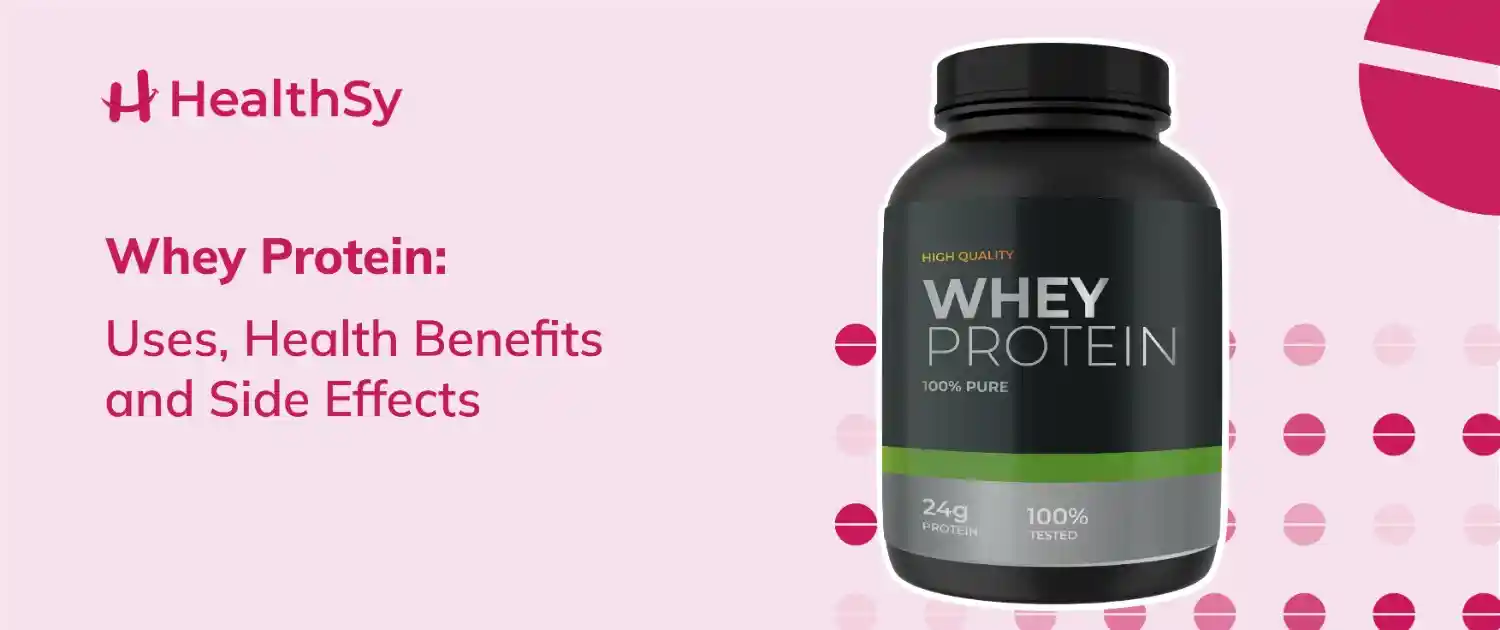Pros & Cons of Sports Drinks: What You Need to Know

Do sports drinks provide instant energy? - An increasing number of people are incorporating these drinks into their daily routines after long or intense workouts. The electrolyte content in these sports drinks provides instant energy after gulping a few sips. However, it is not always necessary to consume them because they also have sugar and calorie content that may not be suitable for everyone. This blog lets us know more about sports drinks and its pros and cons.
What Are Sports Drinks?
Sports drinks are beverages designed to hydrate and replenish electrolytes during intense physical activity. When engaging in vigorous exercise, individuals lose fluids through sweat, which can lead to dehydration and an imbalance of electrolytes. Sports drinks help prevent issues by providing quick energy and hydration. They have water, electrolytes, and carbohydrates. However, it is better to take it as a moderate amount, as excessive consumption can lead to unnecessary added sugars and calories.
What is in a sports drink?
- Carbohydrates: It provides a quick source of energy during physical activity. Most sports drinks hold 6-8% carbohydrates.
- Salts: The sodium, potassium, and magnesium in salt, is important to keep electrolyte balance.
- Isotonia: It maintains the electrolyte concentrations in the blood and hydrates the body effectively.
- Proteins: Some sports drinks include proteins and amino acids that aid in maintaining and increasing muscle mass.
- Vitamins, antioxidants, and trace elements: Sports drinks often contain vitamins, antioxidants, and trace minerals such as vitamin C, vitamin D, vitamin E, zinc, and selenium, which play a key role in boosting immune function and defending cells against oxidative damage caused by strenuous exercise.
Pros and Cons of Sports Drinks
Sports drinks have many advantages, but they also have some disadvantages. Let us explore them in detail here.
Pros of Sports Drinks
- Hydration and Electrolyte Replacement: During intense workouts, individuals may sweat a lot. Drinking a sports drink helps to replenish fluids and electrolytes.
- Instant Energy Boost: To maintain stamina and improve performance, carbohydrates in sports drinks provide a quick source of energy that is especially beneficial for athletes or anyone engaging in prolonged physical exertion.
- Boosts Immunity: Some sports drinks include vitamins and antioxidants, such as vitamin C, vitamin E, zinc, and selenium, which help support the immune system. These nutrients are especially useful in reducing oxidative stress caused by intense physical activity, helping to protect the body’s cells from damage.
Cons of Sports Drinks
- High Sugar and Calorie Content: Many sports drinks in the market contain high sugar levels, adding unnecessary calories, which is not preferable for those looking to maintain a healthy diet. Regular intake can lead to weight gain, tooth decay, and a higher risk of metabolic issues like type 2 diabetes.
- Not Always Necessary for Casual Exercisers: Sports drinks are meant for intense or prolonged exercise. For casual workouts, plain water is usually enough for hydration. Overusing sports drinks can result in excess sugar and calories without added benefits.
- Contribute to Electrolyte Imbalance: There is a possibility of experiencing an electrolyte imbalance when overconsuming sports drinks.
Conclusion
Sports drinks can help those engaging in intense or long-duration exercise by providing hydration, electrolytes, and energy. However, they are not necessary for everyone and may have high sugar, extra calories, and potential electrolyte imbalances. It is important to assess your needs and choose the right hydration method based on your activity level.

If you are a fitness enthusiast or a health-conscious person, you are familiar with whey protein. However, with so much information, individuals are confused about its benefits, potential side effects, and whether it’s the right choice for their health and fitness goals. In this blog, let us get some clarity on whey protein and how it can benefit your overall health and fitness journey.
What is Whey Protein?
Milk contains two primary proteins, which are whey and casein. During cheese production, whey is separated from the milk. Since whey is rich in nutrients, it is commonly used as a protein supplement and can be added to smoothies, shakes, and protein bars. There are three types of whey protein.
- Whey protein concentrate - 35 to 80% protein
- Whey protein isolate - 85-90% protein
- Whey protein hydrolysate - partially pre-digest for easier absorption.
Each type of whey protein varies in protein content and processing methods, making it ideal for a range of dietary needs and preferences. In addition, whey does not taste very appetizing by itself, so it is often flavored with ingredients like cocoa, vanilla, or fruit to improve the taste. If you are considering buying whey protein powder, it is essential to consider your fitness goals, dietary restrictions, and flavor preferences to choose the best option for you.
Benefits of Whey Protein
Whey protein has numerous health benefits. Here are some potential benefits of consuming whey protein powder:
Increase Muscle Mass and Strength
Muscle mass naturally declines with age, often leading to fat gain and a higher risk of chronic diseases. Strength training combined with high-protein foods or supplements, like whey protein rich in leucine, can help prevent muscle loss and improve strength.
Aiding Weight Loss
According to research from the Ministry of Health and Family Welfare, whey protein helps manage appetite by increasing feelings of fullness and reducing food intake. This supports weight management by promoting fat loss while preserving lean muscle mass.
Immune System Support
Whey protein contains immunoglobulins and lactoferrin, which can help boost the immune system by supporting the production of antibodies and enhancing the body's ability to fight infections.
Side Effects of Whey Protein
Kidney Problems
Individuals with kidney issues are generally advised to limit their protein intake, as excessive protein can worsen their condition. The high protein content in whey may exacerbate kidney problems, so it is important to stay within the recommended protein intake limits to avoid complications.
Allergic Reactions
Whey protein powder can occasionally cause allergic reactions, such as hives or swelling. If you are allergic to dairy or have a history of food allergies, it is important to exercise caution and consult with your healthcare provider before using it.
Digestive Discomfort
For some people, whey protein powder may lead to digestive problems like bloating, gas, and stomach cramps, often because of an inability to properly digest the lactose in whey.
When to Take Whey Protein
The best time to take whey protein depends on your fitness goals and daily routine. Here are some suggestions:
- First Thing in The Morning
- Pre/Post Workout
- Between Meals (as a snack)
Conclusion
Whey protein is beneficial for both gaining muscle and supporting fat loss. However, individuals who are lactose intolerant or have kidney problems should exercise caution. Therefore, before adding whey protein or any protein supplement to your routine, it's crucial to consult with a healthcare professional to ensure it aligns with your health needs and doesn't cause any adverse effects.

Have you ever experienced the thrill of running a marathon? If you have not already, it is worth giving a try. Participating in a marathon is among the most challenging experiences one can face, both mentally and physically. For beginners or first-time marathoners, it is important to prepare your body before the run, and equally crucial to care your body afterward to ensure proper recovery. So, in this below narrative, we would like to walk you through a few things that you should get to know before taking part in a marathon. Let us get this started!
How is Marathon Running Positively Impacting Your Health?
Training for and running a marathon can bring about several health benefits. Some of the key benefits include:
- Cardiovascular Fitness: Marathon running strengthens your heart and lungs, improving overall cardiovascular health. Regular long-distance running helps reduce the risk of heart disease and increases your endurance.
- Weight Management: Running a marathon burns approximately 60 calories per kilometre, helping you to maintain or achieve a healthy weight. Training for a marathon often leads to improved body composition, with reductions in body fat.
- Mental Toughness: Training for a marathon requires immense discipline and perseverance. This helps build mental resilience, reduces stress, and promotes a sense of accomplishment.
- Bone and Muscle Strength: Long-distance running helps increase bone density and strengthen leg muscles, joints, and tendons.
- Mood Boosting: Running triggers the release of endorphins, also known as "feel-good" hormones, which will elevate your mood and reduce symptoms of anxiety and depression.
Pre- and Post-Marathon Health Tips
Ensure that you are at your best on race day, it is important to stay prepared beforehand and take care of your body afterwards. Now, let us break down a few key health tips for running your marathon, what to do during the race, and how to recover post-run.
What to Eat Before a Marathon?
Your diet leading to the marathon is critical to ensuring that you have sufficient energy stores. Know the following:
- Carbohydrate Loading: In the week before your marathon, increase your intake of complex carbohydrates, such as whole grains, pasta, rice, and starchy vegetables. This practice helps to store glycogen in your muscles, which is your body’s primary fuel source during endurance activities.
- Stay Hydrated: Drink more water and electrolyte-rich beverages throughout the week. On the day before the marathon, ensure that you are well hydrated but avoid overdoing it, which can lead to discomfort.
- Pre-Race Meal: On race day, have a light, balanced meal around 2–3 hours before the marathon. Focus on carbohydrates with moderate protein, such as oatmeal with bananas, toast with peanut butter, or a smoothie with fruits. Avoid fatty and high-fiber foods that may upset your stomach.
How to Fuel During a Marathon?
Maintaining energy levels during the marathon is essential to avoid hitting the "wall" or experiencing an energy crash. Here is how you can keep going strong:
- Hydration Stations: Take advantage of water and electrolyte drink stations set up along the course. Drink regularly but in lesser amounts to avoid dehydration or overhydration.
- Carb Gels and Chews: After about 60–90 minutes of running, start consuming energy gels, chews, or even small bites of bananas. These quick-digesting carbs will help replenish your glycogen stores and keep your energy levels up.
- Electrolyte Replenishment: You lose electrolytes through sweat, so it is essential to replace them. Many sports drinks have sodium and potassium, which will help maintain your electrolyte balance.
How to Refuel After Your Run?
Post-race recovery is as important as preparation. How you refuel and recover will influence how quickly you bounce back after the marathon:
- Post-Race Snack: Immediately after finishing the race, consume a snack rich in both carbohydrates and protein. This helps replenish glycogen stores and repair muscle tissue. Great options include a banana with peanut butter, a protein smoothie, or yogurt with granola.
- Hydrate: Rehydrate as soon as possible by drinking water or sports drinks. Include some electrolytes in your post-race hydration routine to replace what was lost during the run.
- Recovery Meal: Within 1–2 hours after the race, have a balanced meal that includes lean protein (like chicken or tofu), complex carbohydrates (like quinoa or brown rice), and healthy fats (like avocado or nuts). This will aid in muscle recovery and restore your energy levels.
- Rest and Recovery: In addition to nutrition, focus on active recovery through light stretching, foam rolling, or walking. Give your body time to rest and repair, especially in the days following the marathon.
Something Big Is Brewing!
HealthSy, a budding healthcare startup dedicated to fostering an accessible and affordable healthcare to every individual, is excited to announce its partnership in powering the 12th edition of the Coimbatore Marathon, the premier sporting event in the city. This marathon unites enthusiasts in running, walking, and overall wellness, while also serving a greater purpose, raising awareness about cancer. With an expected participation of over 18000+ runners, including HealthSy entire team, the event exposes HealthSy’s commitment to community health.
Over the last decade, the Coimbatore Marathon has emerged as a vital platform for advocating cancer awareness and support, working closely with the Coimbatore Cancer Foundation (CCF). Being a health-tech platform HealthSy is proud to join this legacy, as the marathon has significantly contributed to increasing awareness about cancer. The funds raised from the event empower CCF to improve its initiatives, including screening, counseling, and support services, making essential healthcare accessible to more individuals.
Additionally, the contributions have increased financial aid for cancer patients, covering crucial aspects such as surgeries, chemotherapy, radiotherapy, diagnostic tests, hospital fees, and rehabilitation services. HealthSy's involvement in the marathon is a great initiative to its mission of transforming healthcare and supporting community wellness, one step at a time.
Now to lace up and take on the challenge! Click to register for the 12th edition of the CCF Marathon and join thousands of passionate runners striving for fitness, fun, and community spirit.
Conclusion
Running a marathon is a monumental achievement, but the effort to the finish line requires more preparation and recovery. Prioritizing your nutrition, hydration, and rest both before and after the race can help you perform at your best while minimizing the risk of injury and exhaustion. By following these health tips, you will be well-equipped to enjoy your marathon experience and recover stronger than ever.
Embrace the challenge, fuel your body right, and remember that the marathon is as much a mental victory as it is a physical one. Happy running!
External Reference Source: https://www.runnersworld.com/uk/health/weight-loss/a763166/running-calorie-calculator/

Post A Comment